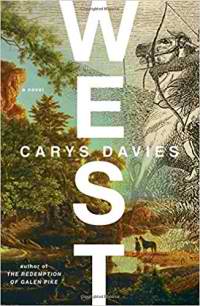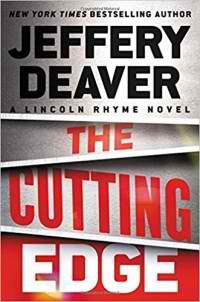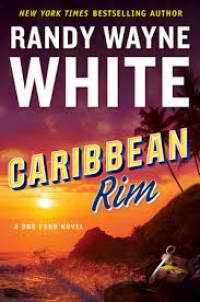West by Carys Davies
 Wednesday, April 25, 2018 at 8:38AM
Wednesday, April 25, 2018 at 8:38AM 
Published by Scribner on April 24, 2018
John Cyrus Bellman leaves his daughter Bess at home in Pennsylvania so that he can take a journey, initially following the path blazed by Lewis and Clarke, with such detours as might be necessary to accomplish his objective. His wife is dead; his sister will take care of Bess, although his sister regards Bellman as a fool who will not survive the journey.
Bellman read a news article about huge mammoth bones dug up in Kentucky, and he believes such creatures, much larger than buffalo, are still roaming in the unexplored west. The article produced “a fierce beating of his heart, a prickling at the edge of his being, and there was nothing he wanted more now than to see the enormous creatures with his own two eyes.”
The consensus of opinion, shared by all but Bellman’s daughter, is that Bellman is a fool and a half-wit who will never be seen at home again. His neighbors suspect he is having a midlife crisis (although that term hasn’t yet been invented), to which most men respond by buying a new horse or a fancy hat and taking up with other women. But Bellman views the journey as the choice between staying at home with “the small and familiar” or “being out here with the large and the unknown.” The reader, having the advantage of historical hindsight, knows Bellman will not find the creatures he seeks, but the courage of the failed explorer is no different than the courage of explorers who discover something wondrous and new.
West is the story of Bellman’s journey, accompanied by a young Shawnee guide named Old Woman from a Distance. While West celebrates the spirit of the explorer, it also asks whether it is preferable to undertake a quixotic journey or to be content with the “small and familiar.” In their absence, Bellman comes to appreciate the business he built, the daughter he misses, the people he knew. It is up to the reader to admire Bellman for chasing a dream or to fault him for abandoning his responsibilities.
West is also the story of Bess, who waits at home for her father’s return, listening to her aunt complain about all the things she dislikes. Both characters face perils. Bellman’s are those of an explorer in conflict with nature; Bess’ are those of a girl who has no father to protect her from the various men who view her with predatory intent. And finally, West is the story of Old Woman from a Distance, who is on an adventure of his own, hoping in the end to have earned self-esteem as he navigates among white men who refuse to teach him their languages.
West has the feel of a stillborn legend. Bellman is just a bit larger than life, but his actions are well within the realm of possibility, and we know he will never find the creatures he pursues. Coincidence or fate plays a role in the story, but the plot does not feel contrived. Carys Davies tells the story in graceful but straightforward prose, creating a convincing historical setting without adding unnecessary detail. The story does not blink from the harsh and arbitrary realities of life, the mistaken impressions that lead to misguided judgments, but it conveys the sense that even in the face of tragedy, hope should never be abandoned.
RECOMMENDED



